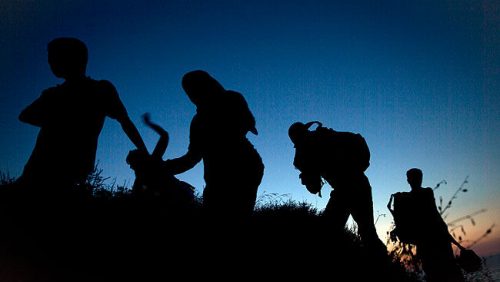
Nomads are human population groups that have traditionally moved from one part of their traditional habitat to another in search of food. Such movements tended to be seasonal. Some nomads have also moved greater distances in search of water, as happened in the Sahara desert, or towards a better climate as happened during the Ice Age. Many nomads continued their way of life even after the physical imperatives of searching for food, water or shelter were no longer so urgent. Such is the case of the Romani and other peripatetic groups who do not recognize the legitimacy of borders and revel in the freedom of a changing night sky.
But that is not the subject of our issue. Here and now we are concerned with nomads whose lives have been greatly disrupted by drastic changes in their native homes. They are variously known as displaced people, refugees, migrant workers, wanderers, drifters, immigrants or emigrants (depending on where you are standing), illegal aliens (if they come from impoverished countries) or expats (if they come from former imperial hubs), slaves, victims of trafficking, undocumented people, the homeless and so forth. Many of them would not have left their homes but for the fact that they were dispossessed of their land, were engaged in a trade made redundant by new technologies, stood on the wrong side of the political divide, professed the false versus the true religion, were the wrong age or the less valued gender, or had the wrong skin pigmentation, phenotype, world view or sexual orientation.
Rampant globalization, senseless war, anthropogenic climate change, unbridled technological innovation and even (why not?) old-fashioned greed are the ingredients that lead to massive destabilization of human populations. Ancient civilizations believed in the circular nature of time. The Hindu Vedas interpreted cycles of good and bad times as the four breaths of the Creator. The Mayans linked such repetitive changes to the precession of the planets. We are now living through one of those iniquitous times. Serai writers and artists have their unique stories to tell on the subject. Read on and join in the ride.







